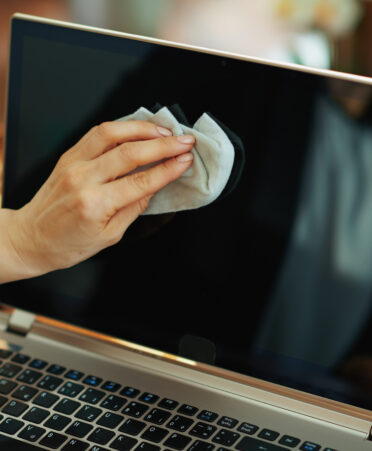(RED OAK, Texas) – Jacob Usery, a Computer Networking and Systems Administration instructor at Texas State Technical College’s North Texas campus, recently answered some questions about what it means to clean up your computer, how to do it, and why it is important.
What does it mean to clean up your computer?
Cleaning up your computer involves a set of tasks aimed at optimizing its performance, safety and functionality. It encompasses actions on both software and hardware levels.
Why is it important to clean your computer?
Keeping your computer clean is crucial for several reasons.
Performance:
Clutter like unused files and outdated software can bog down your system, leading to slow boot times, sluggishness and application crashes. Regular cleaning frees up resources and optimizes performance, making your computer run smoother and faster.
Safety and security:
Outdated software and cluttered systems are more susceptible to cyberthreats. Cleaning and updating your system regularly minimizes attack vectors and safeguards your data and privacy. Regular cleaning and file organization (also) help prevent data loss and ensure your important files are safe.
Organization and usability:
A cluttered system with disorganized files makes it difficult to find what you need. A clean and organized system lets you focus on your tasks without distractions from unnecessary files and programs. This can significantly improve your productivity and workflow.
How do you clean your computer?
Removing unused files and programs, organizing files and folders, updating software, disabling unnecessary startup programs and optimizing settings (cleans up your computer and) improves performance. Dust buildup can overheat your computer and damage components. Regularly clean vents, fans and internal components with compressed air.
How often should you clean your computer?
The frequency of cleaning your computer depends on several factors, including usage, environment, software habits and performance. Ultimately the best approach is to personalize your cleaning schedule based on your individual usage patterns and your computer’s performance. Listen to your device, observe its behavior, and adjust your cleaning routine accordingly.
Who should be cleaning up their computer?
The information about cleaning your computer applies to anyone who uses a computer. Whether you’re a student, professional, gamer or casual user, maintaining a clean system is essential for optimal performance, safety and organization.
Is there anything else that is important for people to know about this?
Always back up important data before cleaning. Things can go wrong, so ensure you have a copy of your crucial files before making major changes. Unplug your computer before cleaning the hardware. Avoid the risk of electrical shock by disconnecting the power cord. Use proper tools. Compressed air is ideal for internal cleaning, while microfiber cloths are suitable for external surfaces. Avoid harsh chemicals or abrasives. Remember, regular cleaning and maintenance are key to a healthy and happy computer.
For more information on TSTC, go to tstc.edu.
